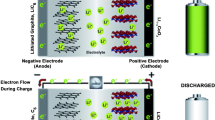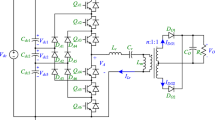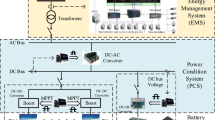Abstract
Capacitors are essential parts of power converters since the cost, size, and performance of converters are mainly dependent on them. Nevertheless, the capacitor is the most degeneration device among all converter parts owing to its aging failures and little lifetime. Thus, the monitoring process is an essential route for valuing health status and gives predictive maintenance to ensure steadiness in electric converter. The equivalent series resistance and the capacitance are commonly indexes employed for estimating the condition grade of capacitors. In this research, six artificial intelligence (AI) algorithms are adopted to estimate the aluminum capacitor (Al-Cap) parameters in the single-phase inverter system. Various circuit signals, such as load voltage and current, capacitor voltage and current, are examined by utilizing the discrete wavelet transform (DWT) analysis and the combinations of fast Fourier transform with various filters. The considered signals are handled as AI model’s inputs to guesstimate the health status of the Al-cap. In addition, the root-mean-square value is employed as an index to compare the accuracy with the analyzed signals. Furthermore, several indicators are mixed to acquire the best recipes for capacitor health evaluation.




















Similar content being viewed by others
References
Araújo SV, Zacharias P, Mallwitz R (2009) Highly efficient single-phase transformerless inverters for grid-connected photovoltaic systems. IEEE Trans Ind Electron 57(9):3118–3128
Amaral AM, Cardoso AM (2006) An experimental technique for estimating the ESR and reactance intrinsic values of aluminum electrolytic capacitors. In: 2006 IEEE instrumentation and measurement technology conference proceedings. IEEE, pp 1820–1825
Dang H-L, Kwak S (2020) Review of health monitoring techniques for capacitors used in power electronics converters. Sensors 20(13):3740
Ahmad MW, Agarwal N, Anand S (2016) Online monitoring technique for aluminum electrolytic capacitor in solar PV-based DC system. IEEE Trans Ind Electron 63(11):7059–7066
Agarwal N, Arya A, Ahmad MW, Anand S (2016) Lifetime monitoring of electrolytic capacitor to maximize earnings from grid-feeding PV system. IEEE Trans Ind Electron 63(11):7049–7058
Miao W, Liu X, Lam K, Pong PW (2019) Condition monitoring of electrolytic capacitors in boost converters by magnetic sensors. IEEE Sens J 19(22):10393–10402
Miao W, Lam K, Pong PW (2019) Online monitoring of aluminum electrolytic capacitors in photovoltaic systems by magnetoresistive sensors. IEEE Sens J 20(2):767–777
Vogelsberger MA, Wiesinger T, Ertl H (2010) Life-cycle monitoring and voltage-managing unit for DC-link electrolytic capacitors in PWM converters. IEEE Trans Power Electron 26(2):493–503
Agarwal N, Ahmad MW, Anand S (2017) Quasi-online technique for health monitoring of capacitor in single-phase solar inverter. IEEE Trans Power Electron 33(6):5283–5291
Ahmad MW, Kumar PN, Arya A, Anand S (2017) Noninvasive technique for DC-link capacitance estimation in single-phase inverters. IEEE Trans Power Electron 33(5):3693–3696
Gupta Y, Ahmad MW, Narale S, Anand S (2018) Health estimation of individual capacitors in a bank with reduced sensor requirements. IEEE Trans Ind Electron 66(9):7250–7259
Pang H, Bryan PM (2010) A life prediction scheme for electrolytic capacitors in power converters without current sensor. In: 2010 twenty-fifth annual IEEE Applied Power Electronics Conference and Exposition (APEC). IEEE, pp 973–979
Nguyen TH, Lee D-C (2014) Deterioration monitoring of DC-link capacitors in AC machine drives by current injection. IEEE Trans Power Electron 30(3):1126–1130
Pu X-S, Nguyen TH, Lee D-C, Lee K-B, Kim J-M (2012) Fault diagnosis of DC-link capacitors in three-phase AC/DC PWM converters by online estimation of equivalent series resistance. IEEE Trans Ind Electron 60(9):4118–4127
Ahmad MW, Agarwal N, Kumar PN, Anand S (2017) Low-frequency impedance monitoring and corresponding failure criteria for aluminum electrolytic capacitors. IEEE Trans Ind Electron 64(7):5657–5666
Zhao Z, Lu W, Davari P, Du X, Iu HH-C, Blaabjerg F (2020) An online parameters monitoring method for output capacitor of buck converter based on large-signal load transient trajectory analysis. IEEE J Emerg Sel Top Power Electron 9(4):4004–4015
Park C-J, Dang H-L, Kwak S, Choi S, Technology (2022) Detection algorithms of parallel arc fault on ac power lines based on deep learning techniques. J Electr Eng Technol 17(2):1195–1205
Park C-J, Dang H-L, Kwak S, Choi S (2021) Deep learning-based series AC arc detection algorithms. J Power Electron 21(10):1621–1631
Dang H-L, Kim J, Kwak S, Choi S (2021) Series DC arc fault detection using machine learning algorithms. IEEE Access 9:133346–133364
Dang H-L, Kwak S, Choi S (2022) Parallel DC arc failure detecting methods based on artificial intelligent techniques. IEEE Access 10:26058–26067
Dang H-L, Kwak S, Choi S (2021) Different domains based machine and deep learning diagnosis for DC series arc failure. IEEE Access 9:166249–166261
Dang H-L, Kwak S, Choi S (2022) Identifying DC series and parallel arcs based on deep learning algorithms. IEEE Access 10:76386–76400
Dang H-L, Kim J, Kwak S et al (2022) Analysis and diagnosis scheme of parallel arc failure in DC power lines. J Electr Eng Technol. https://doi.org/10.1007/s42835-022-01273-2
Soliman H, Davari P, Wang H, Blaabjerg F (2017) Capacitance estimation algorithm based on DC-link voltage harmonics using artificial neural network in three-phase motor drive systems. In: 2017 IEEE Energy Conversion Congress and Exposition (ECCE). IEEE, pp 5795–5802
Soliman H, Wang H, Blaabjerg F (2016) Capacitance estimation for dc-link capacitors in a back-to-back converter based on artificial neural network algorithm. In: 2016 IEEE 8th International Power Electronics and Motion Control Conference (IPEMC-ECCE Asia). IEEE, pp 3682–3688
Kamel T, Biletskiy Y, Chang L (2015) Capacitor aging detection for the DC filters in the power electronic converters using ANFIS algorithm. In: 2015 IEEE 28th Canadian Conference on Electrical and Computer Engineering (CCECE). IEEE, pp 663–668
Park H, Kim J, Kwak S (2022) Deep learning-based estimation technique for capacitance and ESR of input capacitors in single-phase DC/AC converters. J Power Electron 22:513–521
Dang H-L, Park H, Kwak S, Choi S (2022) DC-link electrolytic capacitors monitoring techniques based on advanced learning intelligence techniques for three-phase inverters. Machines 10:1174. https://doi.org/10.3390/machines10121174
Boser BE, Guyon IM, Vapnik VN (1992) A training algorithm for optimal margin classifiers. In: Proceedings of the fifth annual workshop on Computational learning theory, pp 144–152
Breiman L, Friedman JH, Olshen RA, Stone CJ (2017) Classification and regression trees. Routledge
Yan X, Su X (2009) Linear regression analysis: theory and computing. World Scientific
Breiman L (1996) Bagging predictors. Mach Learn 24(2):123–140
Wang J (2020) An intuitive tutorial to Gaussian processes regression
Acknowledgements
This work was supported by the National Research Foundation of Korea (NRF) grant funded by the Korea government(MSIT) (2020R1A2C1013413) and Technology Development Program to Solve Climate Changes through the National Research Foundation of Korea(NRF) funded by the Ministry of Science, ICT (2021M1A2A2060313).
Author information
Authors and Affiliations
Corresponding authors
Additional information
Publisher's Note
Springer Nature remains neutral with regard to jurisdictional claims in published maps and institutional affiliations.
Rights and permissions
Springer Nature or its licensor (e.g. a society or other partner) holds exclusive rights to this article under a publishing agreement with the author(s) or other rightsholder(s); author self-archiving of the accepted manuscript version of this article is solely governed by the terms of such publishing agreement and applicable law.
About this article
Cite this article
Dang, HL., Park, HJ., Kwak, S. et al. Evaluation of Single-Phase DC–AC Converters with Condition Monitoring Algorithm of Aluminum Electrolytic Capacitors Using Artificial Learnings with Various Circuit Signals and Filtering Combinations. J. Electr. Eng. Technol. 18, 3021–3032 (2023). https://doi.org/10.1007/s42835-023-01426-x
Received:
Revised:
Accepted:
Published:
Issue Date:
DOI: https://doi.org/10.1007/s42835-023-01426-x




